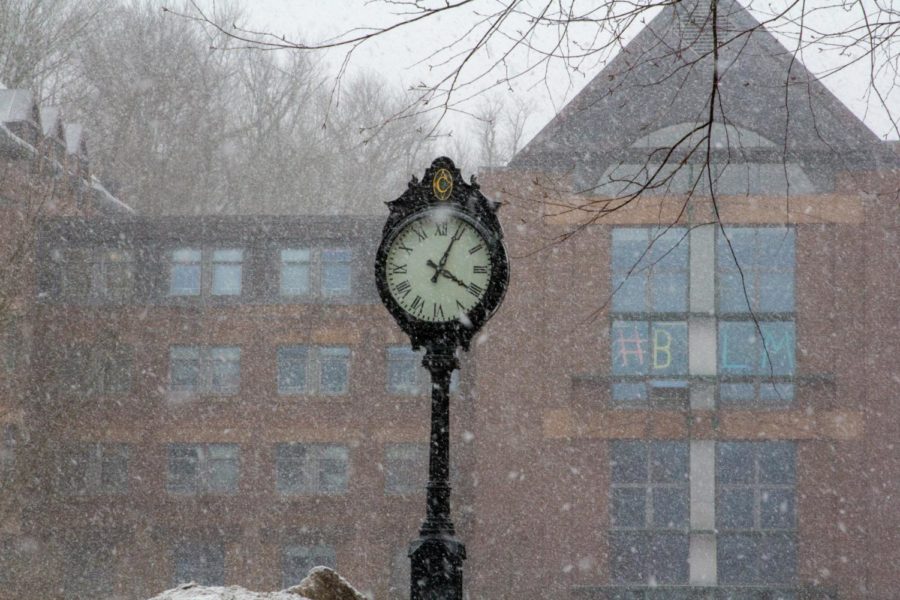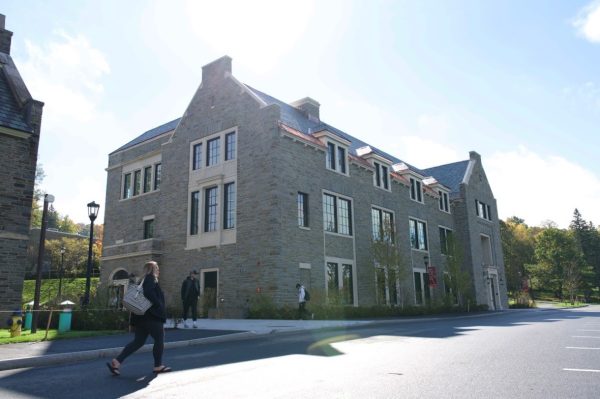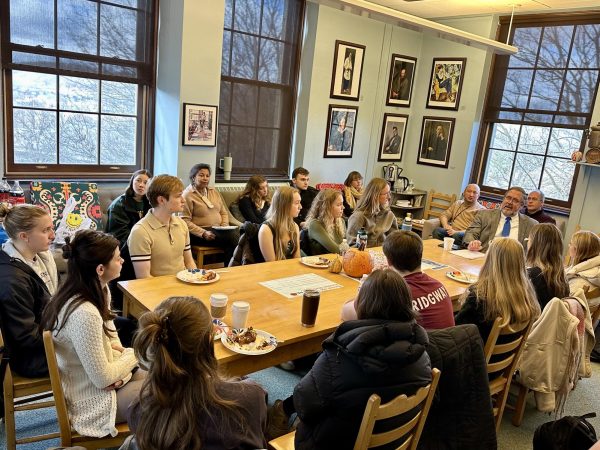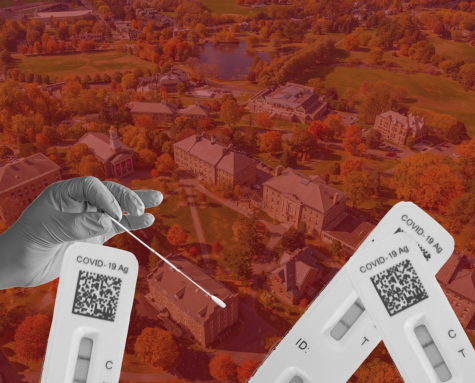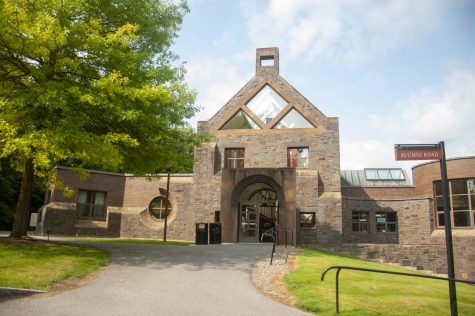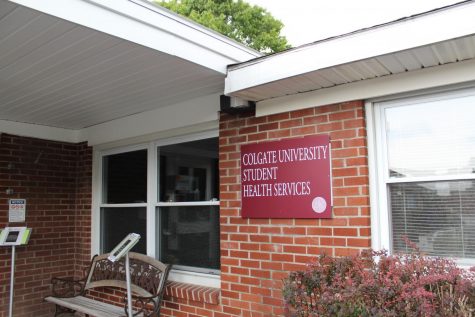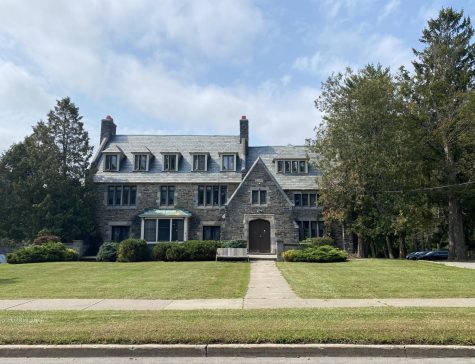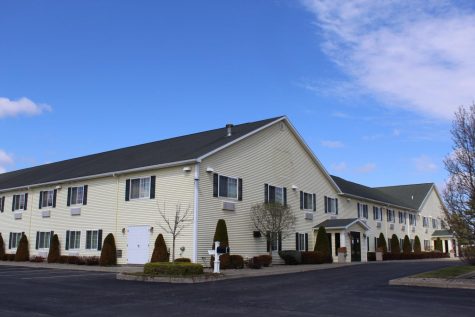Increase in COVID-19 Cases Delays Movement to Gate 3
Commitment to Community Health violations and new positive cases of COVID-19 initially delayed the University’s entrance into Gate 3 last week, but after no positive cases over the weekend and a reduction in large gatherings, the Health Analytics Team (HAT) met again Tuesday to decide their recommendation. Their recommendation had not been announced as of press time. In the midst of deciding to shift gates, the administration is still working towards receiving vaccine allocation after not getting doses for three weeks.
Vice President of Communications Laura Jack wrote in her March 3 Colgate Together Digest email that she, the HAT, the Task Force on Reopening and President Brian Casey met on March 2 to discuss moving to Gate 3. A large part of the meeting focused on parties held the previous weekend, according to Jack, who added that the violations were being investigated.
“I’m sure that the hosts of these get-togethers didn’t simply forget, but please remember that large gatherings violate the Commitment to Community Health and New York State regulations,” Jack wrote. “There are consequences, including state fines, a required move to remote status, the need to drop in-person-only courses, or even the premature closure of this campus.”
Citing weekend gatherings as well as positive traces in wastewater testing, the HAT recommended waiting until the return of test results through Friday, March 5 before entering Gate 3.
“The HAT was extremely concerned about the number of students attending off-campus parties,” Health Analytics Manager Severin Flanigen said. “These events can become super-spreader events as we have seen at other institutions. The HAT felt moving to Gate 3 prior to assessing any potential impacts of these gatherings would be an unnecessary risk to the health and safety of students, faculty, staff and the community.”
Casey expressed concern about the growing number of large gatherings on campus. According to Casey, the limited amount of isolation space available to the Colgate community means the University cannot afford to have an outbreak occur like the ones at Dartmouth College, Bucknell University and the United States Naval Academy (Navy). All of these schools had similarly low infection rates throughout the semester but recently experienced a rapid increase in cases that resulted in a partial or full halt to on-campus activity.
“I know there’s a sense that we’re just shutting down parties because [we] want to shut down parties, [but] no,” Casey said. “This thing can turn on a dime, that’s what it is. I don’t want to have these events blow it for the seniors’ [in-person graduation].”
According to Associate Vice President for Campus Safety, Emergency Management and Environmental Health and Safety Dan Gough, the small number of cases still causes concern because of how quickly COVID-19 spreads, especially the new strains of the virus.
“We keep seeing universities and colleges in a 48 to 72-96-hour timeframe go from just zero or a few cases to over a hundred or several hundred in that compact timeframe,” Gough said.
On Monday, March 8, Jack announced that no new cases of COVID-19 had been detected on campus and that incidents of large gatherings had decreased over the weekend. The HAT was scheduled to meet on Tuesday, March 9 to decide their recommendation on moving to Gate 3 based on the new information.
Some students have been frustrated by the delay in moving to Gate 3.
“I’m sad about it, but I guess it’s better to be safe than sorry,” sophomore Valen Zalants said.
In the Colgate Together Digest from March 1, Jack also announced that the University had not received a vaccine allocation for that week. Gough said that, in response, the University shifted its strategy in an effort to get vaccines.
“For three straight weeks we have not received an allocation. We changed our strategy a little… We were pre-booking or requesting 100 doses of Moderna. We’ve increased that number under the assumption that that might be too small a number that the state doesn’t consider 100 (doses) valuable in the sense of getting it to as many people as quickly as possible,” Gough said.
Gough said that Community Memorial Hospital changed its request strategy in a similar way and was told it would be receiving 500 doses.
“There is still a limited supply, but that supply is increasing, and at some point we will get allocations. It’s just not as fast as I want it to be or many other people want it to be,” Gough said. “But, when that does happen… the one advantage to not getting it these past three weeks is that it’s given us more time to plan for our point of dispensing, certainly that was helpful to us. Could we have done it three weeks ago? Yes. Are we gonna do it a lot better now that we’ve had more time to plan? Absolutely.”

Annabel Morris is a senior from Rumson, NJ concentrating in political science and minoring in Middle East & Islamic studies and anthropology. She has...


